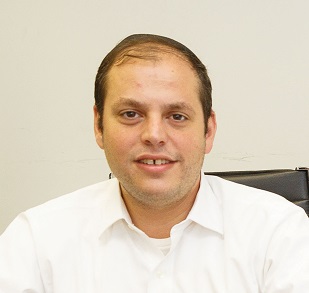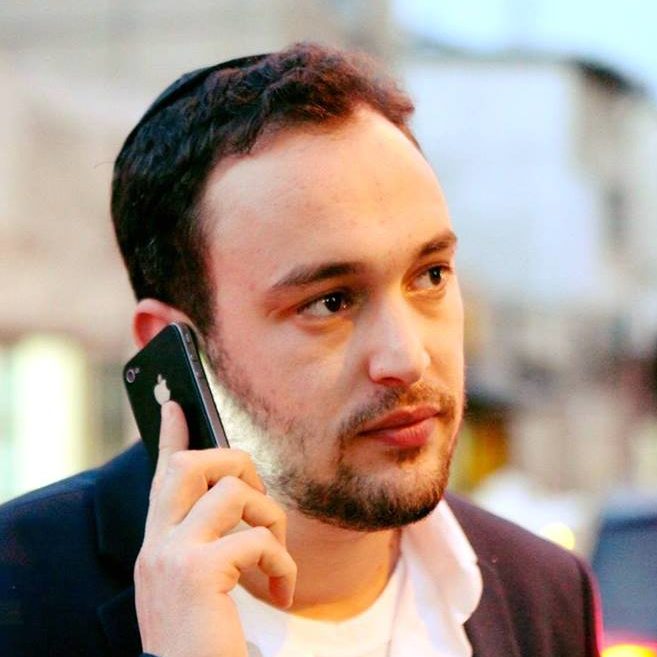City for a Future


Incoming mayor Rabbi Avraham Rubinstein is best known for both helping the “little guy,” and keeping Bnei Brak on the map, both spiritually and fiscally

“I really don’t see any reason why Bnei Brak shouldn’t become the most successful city in the Dan region. And I don’t mean as a Torah superpower — everyone knows Bnei Brak is there already. I believe that we can bring the city’s material standing on par with its spiritual level” (Photos: Ezra Trabelsi, Shuki Lehrer, Flash 90, Eli Cobin, Daniel Zer)
Think of Bnei Brak and you probably conjure up images of crowded streets dotted with shuls and yeshivos, stucco apartment buildings too close to each other, avreichim hurrying to seder with seforim under their arms, and women pushing strollers with shopping bags and several kids hanging tight. But sit a few minutes with Rabbi Avraham Rubinstein and you’ll learn of a parallel landscape, one of economic development and fiscal growth.
Rubinstein, who served as Bnei Brak’s interim mayor in 2013 when Rabbi Yaakov Asher left the municipality for the Knesset, is slotted to become mayor again in September 2018 when Mayor Chanoch Zeibert’s term is up. (In Bnei Brak, although elections are officially mandated, the mayoral candidate is chosen by gedolei Yisrael to run this city known as the ir haTorah v’hachassidus.) Yet this well-known askan, who is a talmid muvhak of Rav Chaim Kanievsky as well as his mechutan (Rabbi Rubinstein’s son is married to Rav Chaim’s granddaughter), is also head of Nachalas Moshe, one of the largest kollel networks in the country, and has served as the secretary of Degel HaTorah’s Moetzes Gedolei Yisrael for the past 20 years — where he’s responsible for transmitting sensitive messages between the homes of gedolei Yisrael in good faith and with discretion.
Juggling all these positions, both in Torah and askanus, is no easy feat. On the one hand, he’s an admired rosh kollel who spends endless hours worrying about the support of hundreds of avreichim; yet at the same time, he’s the driving force behind the construction and commercial revolution that began in Bnei Brak ten years ago and which managed to bring fiscal balance to the city. With his unwavering trust in gedolei Torah, coupled with his dedication to the simple folk of his town who’ve been availing themselves of his assistance for the past several decades, his current focus is on advancing and transforming the Torah city of Bnei Brak into a relevant financial power.
Rabbi Rubinstein has always been community-conscious, but his first official foray into local politics was in 1998, when a rotation agreement between Agudas Yisrael and Degel HaTorah heralded the beginning of unity between the different power bases of the city, which had been enmeshed in factional strife for years. Rabbi Rubinstein was on the Degel HaTorah list headed by incoming mayor Rabbi Mordechai Karelitz. The morning after the election, Rubinstein was summoned to the new mayor’s office.
“Rabbi Karelitz offered me a choice of a few positions,” he relates. “The first, and more tempting, was membership on the city council. Back then, it was considered a title with lots of prestige. The second was the chairmanship of what they called the ‘discount committee’ in the municipality, which was sort of an ombudsman to help people navigate bureaucracy and get discounts they were eligible for. I was a rookie, but I understood that the decision was between a prestigious position on one hand, or hard work with little kavod or recognition on the other.
“So what did I decide?” asks Rabbi Rubinstein — who today, among his other titles, is deputy mayor under Chanoch Zeibert. “Well, I realized that in the discounts committee I could help the ‘little people.’ Rabbi Karelitz warned me that it was a very thankless job, with round-the-clock work and constant complaints. But I decided to take it anyway. I knew it was important work.”
(Excerpted from Mishpacha, Issue 701)
Oops! We could not locate your form.













